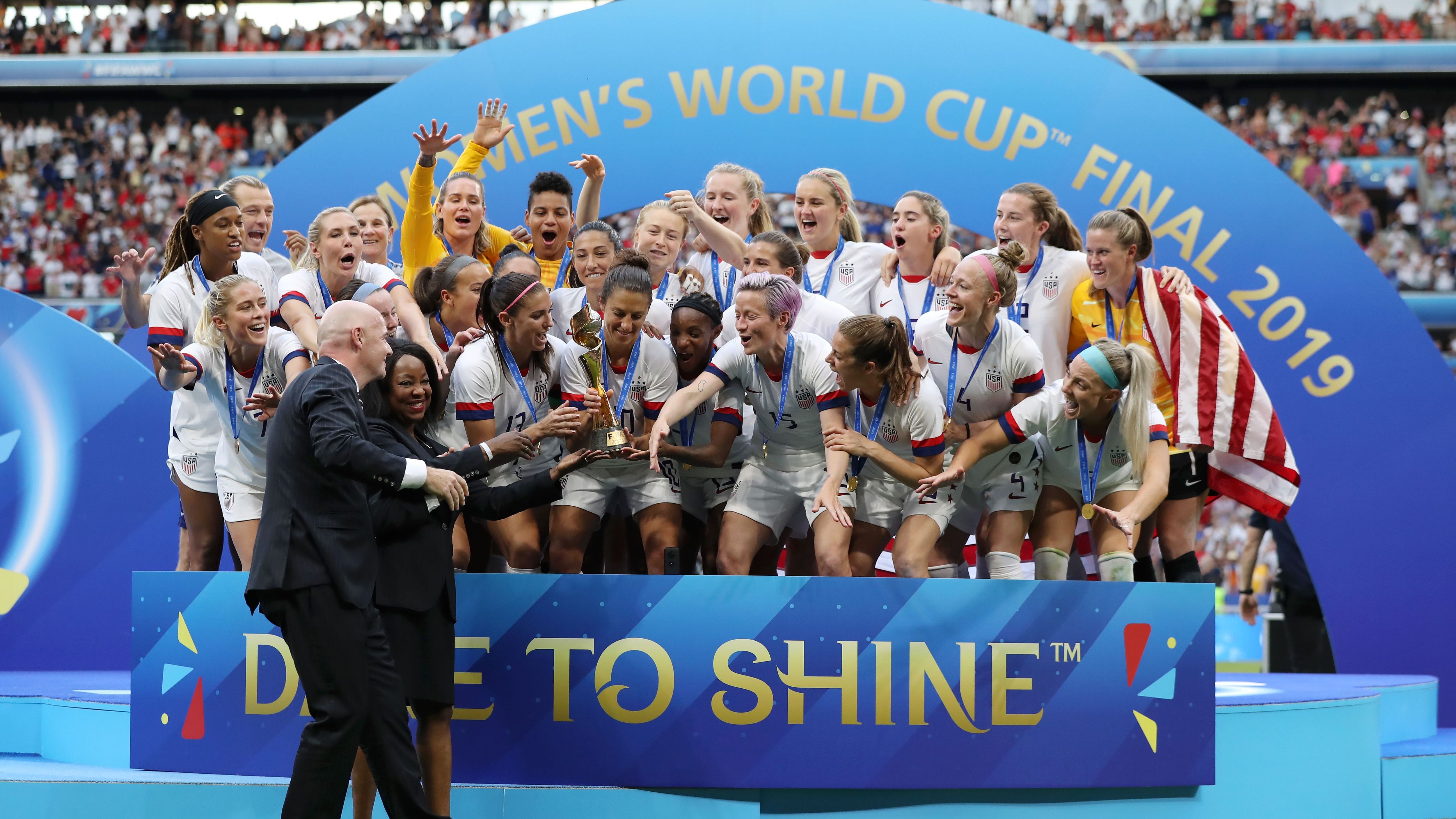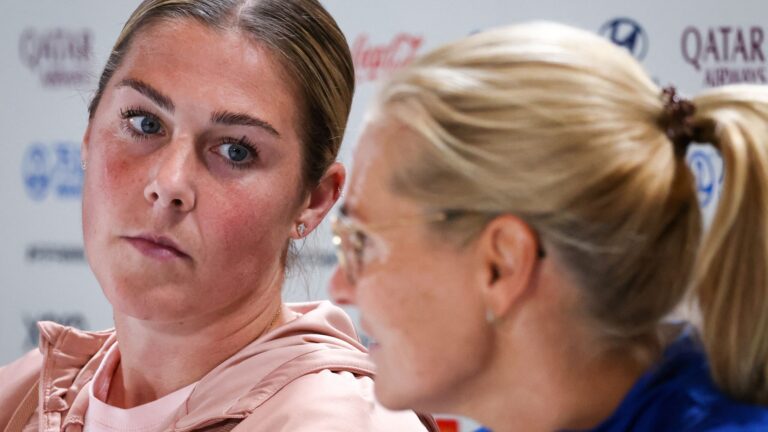

Unveiling the Ambitious 2031 Women’s World Cup Partnership
In a landmark move for global women’s soccer, the Women’s World Cup is set to return to the United States in 2031, marking yet another chapter in its storied history. This event not only highlights the nation’s enduring commitment to the sport but also paves the way for shared hosting duties with regional allies, promising an unprecedented celebration of athletic excellence and cultural exchange.
The United States’ Storied Role in Women’s World Cup Hosting
As the 2031 Women’s World Cup begins, it will represent the third occasion for the United States to serve as host, building on the memorable events of 1999 and 2003. This achievement stands alone, as no other nation has taken on this responsibility more than twice, underscoring America’s pivotal influence in the tournament’s evolution. Additionally, the U.S. is poised to pioneer by organizing both the men’s and women’s versions within a half-decade span, following the upcoming 2026 men’s event shared with Mexico and Canada. That earlier tournament plans to involve 11 cities across the U.S., culminating in a finale at MetLife Stadium in New Jersey, which could serve as a model for the 2031 setup.
Insights from U.S. Soccer Leadership
At the helm of this initiative, U.S. Soccer president Cindy Parlow Cone has shared her deep enthusiasm for what she calls a “game-changing alliance.” Her perspective emphasizes the collaborative spirit driving this effort forward.
Collaborative Vision for Global Impact
In her official remarks, Cone highlighted the pride in spearheading the bid for the 2031 Women’s World Cup in tandem with Concacaf collaborators from Mexico, Costa Rica, and Jamaica. “This partnership gives us a remarkable chance to stage the most influential Women’s World Cup to date,” she noted, “one that will energize emerging audiences and boost the popularity of women’s soccer throughout our region and beyond. We’re eager to foster enduring advancements in the sport, establishing a heritage that extends well past 2031 and redefines worldwide benchmarks for women’s football.”
A Milestone for Caribbean Nations in Women’s Sports
The addition of Jamaica to the hosting lineup signifies a groundbreaking advancement for women’s athletics in the region. For the first time, a Caribbean nation will host World Cup games, a development that Jamaica Football Federation president Michael Ricketts deems “an incredible realization of long-held aspirations.”
Jamaica’s Transformative Opportunity
Ricketts expressed the profound effects this will have on the Jamaican populace, stating, “This opportunity will deeply resonate with every Jamaican individual. For a nation of our size, managing World Cup games is an extraordinary accomplishment. We’re thrilled and confident in our ability to deliver an unforgettable event for athletes and spectators alike. This moment is monumental for Jamaica and all who identify with our heritage.”
FIFA’s Bold Aspirations for Women’s Soccer Expansion
FIFA President Gianni Infantino has openly outlined his expansive goals for women’s football. After the 2023 tournament achieved financial balance with $570 million in earnings, he is now targeting $1 billion for the 2031 edition, a target made feasible by the tournament’s growth and the strong market appeal of the U.S.
Evolving the Tournament Structure
Another key development from FIFA is the increase to 48 participating teams, furthering the reach of women’s sports. The 2031 Women’s World Cup will implement a 12-group structure, adding an extra week to the timeline and boosting the match count from 64 to 104, making it the grandest edition yet. From its start in 1991 with only 12 teams in China, the event has progressively grown-to 16 teams in 1999, 24 in 2015, and 32 in 2023 when Spain emerged victorious. The shift to 48 teams is a historic leap, with the 2027 version in Brazil maintaining the 32-team format as a bridge to this expansion.
Future Horizons for Women’s Football Beyond 2031
With the Americas gearing up for their prominent role in 2031, supported by an unchallenged joint proposal including Jamaica and Costa Rica, the trajectory of women’s soccer continues to advance. Looking ahead, the United Kingdom is slated to host the 2035 Women’s World Cup, with a unified bid from England, Scotland, Wales, and Northern Ireland, as endorsed by Infantino. Discussions include utilizing legendary sites like Wembley, Hampden Park, and Cardiff’s Principality Stadium, along with emerging venues such as Manchester United’s upcoming stadium and Birmingham City’s planned 62,000-capacity arena, assuming timely completion of these advanced facilities.
Background on the U.S. Soccer’s 2031 FIFA Women’s World Cup Bid
The world of women’s soccer is buzzing with excitement as U.S. Soccer takes a major step forward in its bid to co-host the 2031 FIFA Women’s World Cup. This development highlights the growing global interest in women’s sports and the United States’ commitment to elevating the game. U.S. Soccer’s announcement of co-hosts underscores a collaborative effort to deliver a world-class tournament that could inspire millions of fans and athletes alike.
What You Need to Know About the 2031 FIFA Women’s World Cup Bid
The 2031 FIFA Women’s World Cup bid by U.S. Soccer represents a strategic push to build on the success of previous tournaments, like the 2019 event in France and the 2023 edition in Australia and New Zealand. This bid isn’t just about hosting games; it’s about creating a platform that promotes gender equality in sports and boosts economic growth through tourism and media exposure. U.S. Soccer has been vocal about partnering with neighboring countries to share the responsibility, ensuring that the event’s infrastructure and fan experiences are top-tier.
Key elements of the bid include state-of-the-art stadiums, sustainable event planning, and community engagement programs. For instance, potential venues could leverage existing facilities from the 2026 FIFA Men’s World Cup, which the U.S. is already preparing for, to maximize resources. This overlap in preparations could make the 2031 Women’s World Cup bid even more efficient and appealing to FIFA.
Confirmed Co-Hosts for the 2031 FIFA Women’s World Cup
U.S. Soccer has officially confirmed its co-hosts for the 2031 bid, marking a historic collaboration that expands the tournament’s reach across borders. While exact details can vary based on ongoing negotiations, the primary co-hosts include Canada and Mexico, forming a North American alliance that’s gaining traction in international soccer circles.
Breakdown of the Co-Hosting Partners
- United States as Lead Host: As the main driver, U.S. Soccer will likely handle the bulk of the organization, drawing on its experience from past events like the 1999 Women’s World Cup. This role allows the U.S. to showcase its world-class facilities in cities such as Los Angeles, New York, and Atlanta, which are prime candidates for hosting matches.
- Canada’s Role in Co-Hosting: Canada brings its own stellar track record, having co-hosted the 2015 FIFA Women’s World Cup. Expect Canadian cities like Vancouver and Toronto to step up, offering venues that emphasize innovation and fan-friendly atmospheres. This partnership could enhance cross-border fan travel and cultural exchanges, making the 2031 event a true continental celebration.
- Mexico’s Contribution: Mexico’s inclusion adds a dynamic flair, with potential host cities like Mexico City and Guadalajara providing passionate crowds and growing soccer infrastructure. This co-hosting arrangement could help bridge gaps in the region, promoting the growth of women’s soccer in Latin America and fostering inclusivity.
These co-hosts were selected based on their shared infrastructure, economic strengths, and commitment to women’s empowerment, aligning perfectly with FIFA’s criteria for the 2031 FIFA Women’s World Cup bid.
Why Co-Hosting Makes Sense for the 2031 FIFA Women’s World Cup
Co-hosting has become a popular strategy for major tournaments, and the 2031 FIFA Women’s World Cup bid is no exception. By teaming up with Canada and Mexico, U.S. Soccer can distribute the workload, reduce costs, and create a more inclusive event that resonates across North America.
Benefits of This Co-Hosting Approach
- Enhanced Fan Engagement: Spreading games across multiple countries means fans from different regions can attend without extensive travel. For example, a fan in Mexico could catch a game in Guadalajara and then follow the tournament north to the U.S. or Canada, boosting overall attendance and excitement for the 2031 FIFA Women’s World Cup.
- Economic and Infrastructure Advantages: Co-hosting allows for shared resources, like stadiums and transportation networks, which can lead to significant cost savings. This is crucial for a bid focused on sustainability, as it minimizes environmental impact while maximizing the economic benefits, such as job creation and tourism revenue.
- Promoting Women’s Soccer Globally: This setup provides an opportunity to highlight underrepresented talent and grow the sport in co-hosting nations. Initiatives might include youth programs and community events that inspire the next generation, ensuring the legacy of the 2031 FIFA Women’s World Cup extends far beyond the final whistle.
The Impact of the 2031 FIFA Women’s World Cup Bid on Global Soccer
The confirmation of co-hosts for the 2031 bid is set to have a ripple effect on women’s soccer worldwide. This event could elevate participation rates, increase media coverage, and drive investments in female athletes.
Key Impacts to Watch For
- Growth in Participation: With U.S. Soccer leading the charge, expect a surge in youth programs and grassroots initiatives across the co-hosting countries. Bullet points of potential outcomes include:
- Increased female enrollment in soccer academies.
- More opportunities for diverse athletes to compete at higher levels.
- Partnerships with schools and communities to promote gender equality in sports.
- Media and Broadcasting Boost: The 2031 tournament could shatter viewership records, especially with co-hosting amplifying global appeal. H3 subheadings like this highlight how streaming platforms and social media will play a big role, making it easier for fans worldwide to follow the action.
- Sustainability and Legacy Efforts: Under the 2031 FIFA Women’s World Cup bid, co-hosts are likely to prioritize eco-friendly practices, such as carbon-neutral venues and waste reduction. This not only aligns with global trends but also leaves a lasting positive impact on host communities.
Next Steps and Challenges in the 2031 FIFA Women’s World Cup Bid
As the bid progresses, there are several milestones to monitor, including FIFA’s final decision process. U.S. Soccer and its co-hosts will need to navigate challenges like logistical coordination and funding.
Potential Challenges and How They’re Being Addressed
- Logistical Hurdles: Coordinating across borders requires seamless planning, from visa processes to event security. Strategies include early collaboration between national soccer federations to iron out details.
- Funding and Sponsorship: Securing investments is key, with opportunities for corporate sponsors to align with the bid’s themes of empowerment and innovation.
This comprehensive approach to the 2031 FIFA Women’s World Cup bid by U.S. Soccer and its co-hosts promises an unforgettable event that could redefine women’s soccer on the global stage. (Word count: 728)









